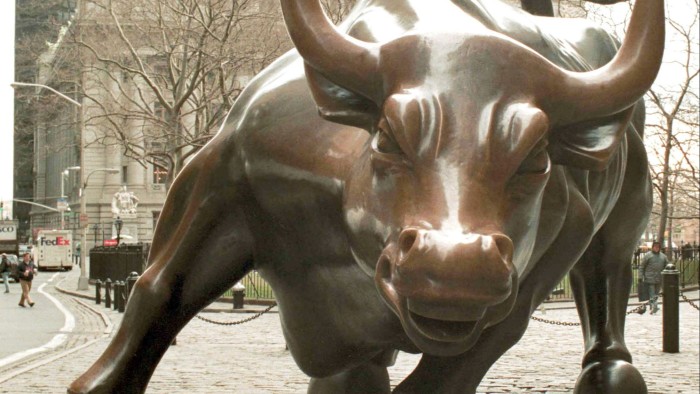US active ETF sales soar while passive counterparts bleed cash

Simply sign up to the Exchange traded funds myFT Digest -- delivered directly to your inbox.
Latest news on ETFs
Visit our ETF Hub to find out more and to explore our in-depth data and comparison tools
Active exchange traded fund sales trounced those of their passive counterparts last month, powered by JPMorgan Asset Management‘s line-up.
Data from Morningstar shows the active side of the US industry garnered $8.6bn in February inflows, while passive ETFs shed $10.4bn.
The US industry-wide $1.8bn outflow marked ETFs’ first money-losing month since April last year.
JPMorgan rode the active sales wave to a second-place finish in overall flows, with $5.5bn, from $8bn in January. Lifting the sales were its Equity Premium Income, Ultra-Short Income and Nasdaq Equity Premium Income, as well as the passive BetaBuilders Europe.

This article was previously published by Ignites, a title owned by the FT Group.
Vanguard remained the industry’s top seller, with $9.6bn in inflows, from $12.1bn in January.
iShares and State Street Global Advisors both swung to outflows. At iShares, investors pulled $15.7bn, most of it from three funds: the iBoxx $ High Yield Corporate Bond (HYG), iBoxx $ Investment Grade Corporate Bond (LQD) and Core S&P 500 ETFs.
SSGA bled $17.3bn, most of it from the firm’s marquee S&P 500 ETF (SPY).
Behind JPMorgan, the strongest sellers were Dimensional Fund Advisors, with $2bn in new cash, followed by Invesco, with $1.8bn; Charles Schwab, $1.7bn; and ProShares, $800mn.
First Trust and WisdomTree each posted $600mn in inflows.
Latest news on ETFs
Visit our ETF Hub to find out more and to explore our in-depth data and comparison tools
Comments